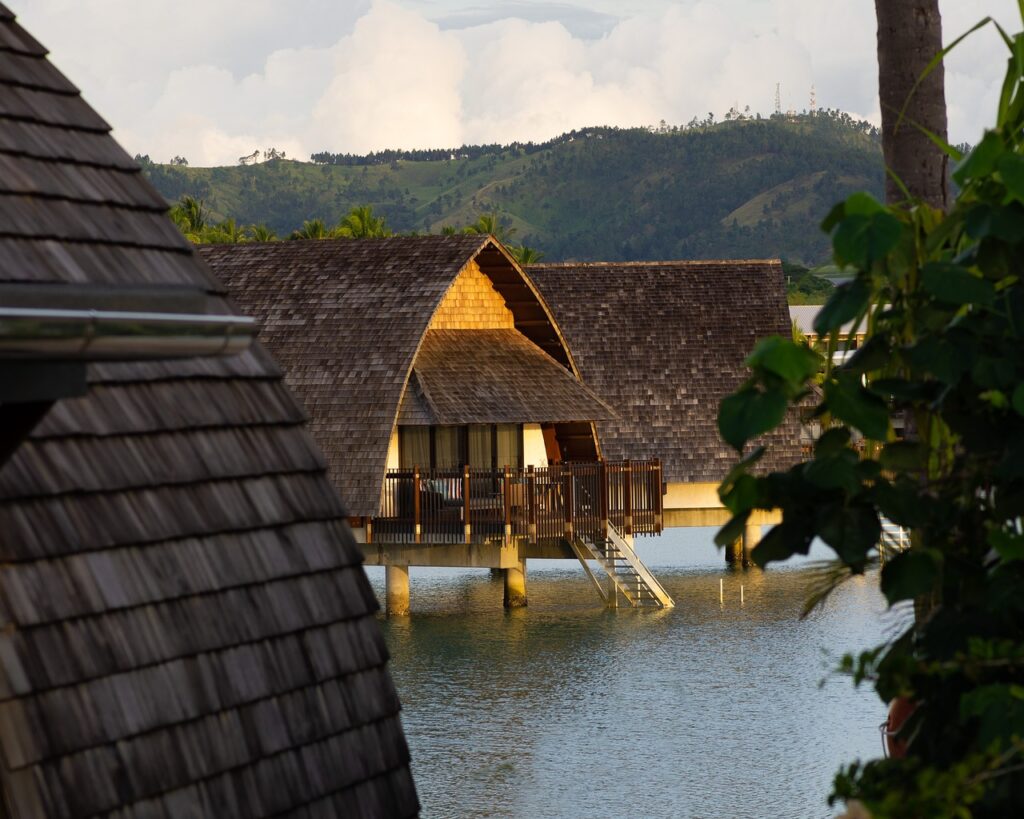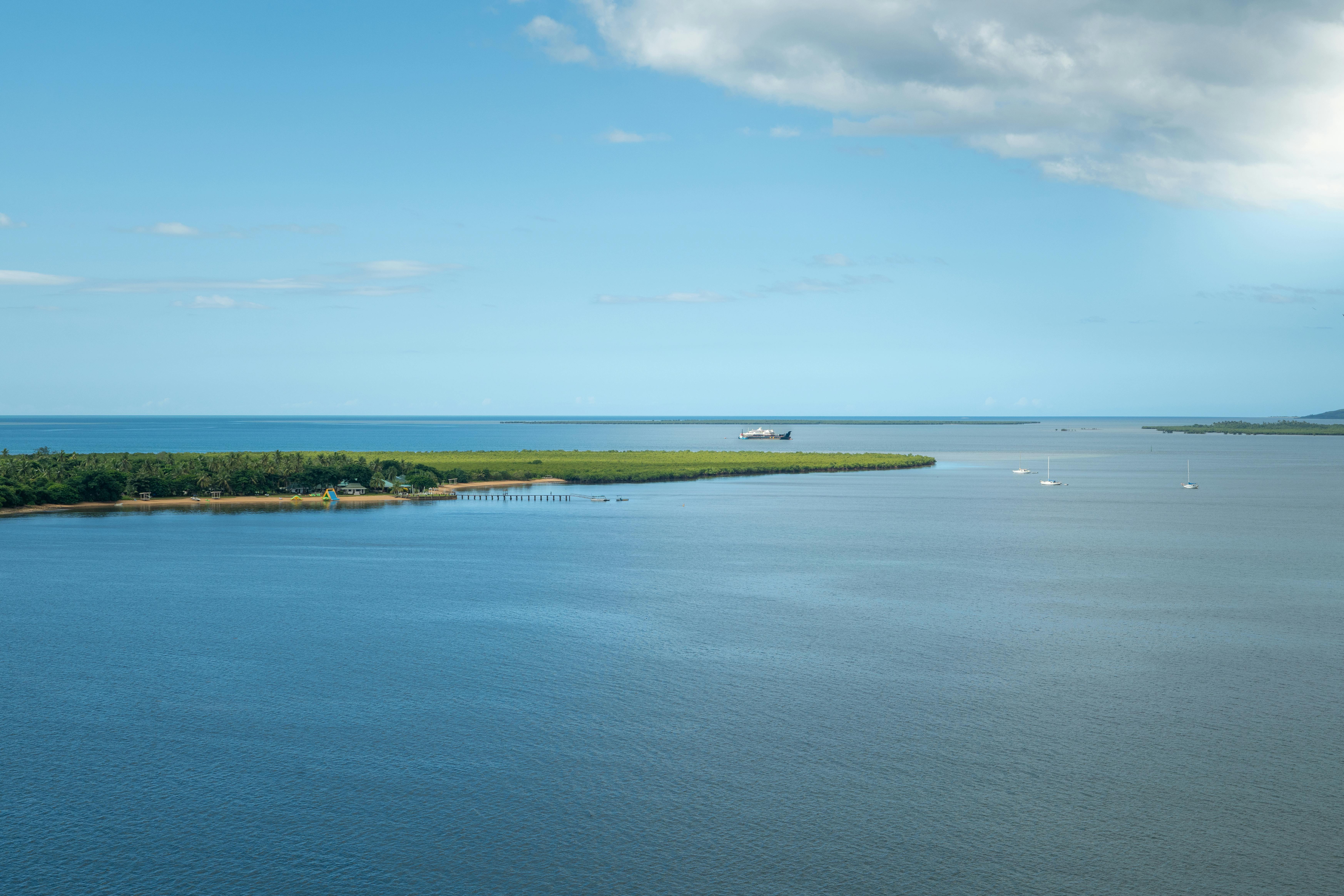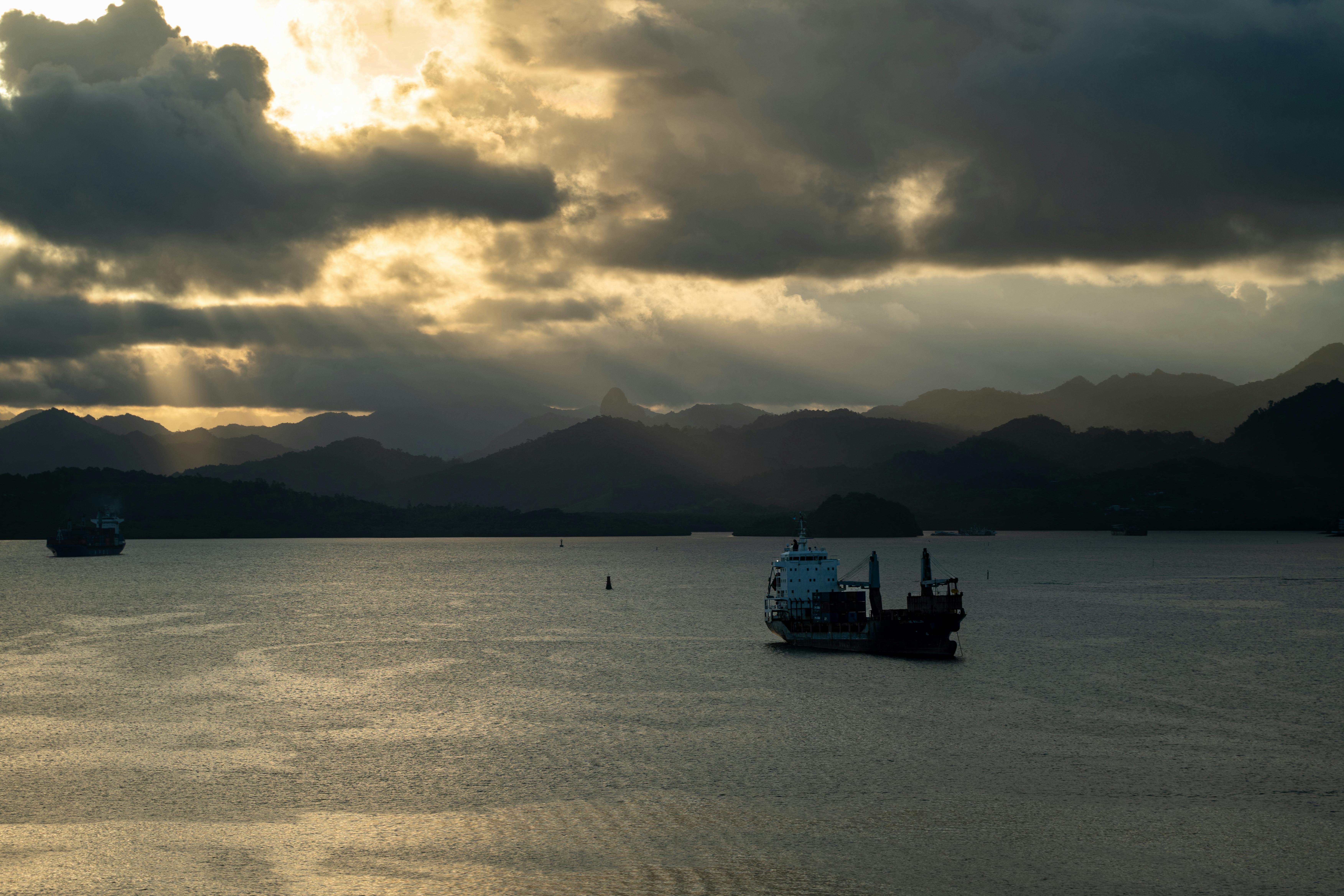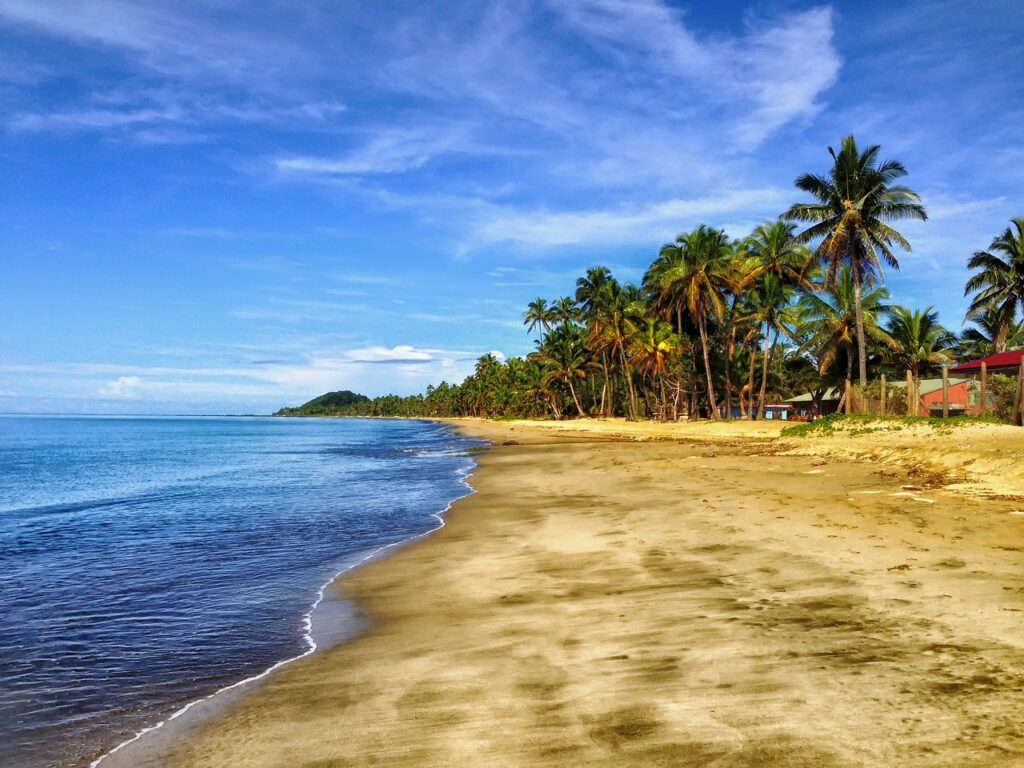Fiji is a tropical paradise in the Pacific Islands with over 300 islands, a haven for backpackers seeking adventure and breathtaking scenery. With crystal-clear waters, lush green forests, and vibrant local culture, Fiji is a destination that has something for every kind of traveler. While many people flock to Fiji’s luxury resorts and popular islands, there is a more unconventional way to experience real Fiji-broke backpacking.
Ditch the tourist trail for a more rustic, spontaneous approach to travel, and you’ll find a Fiji that few travelers will ever witness. The best way? Hopping onto small boats with locals, finding hidden coves and remote islands, and being taken into the daily lives of the people of Fiji.
In this blog, we are going to dive into the world of broke backpacking in Fiji and share some tips on how to navigate the islands on a broke budget-from finding affordable accommodations and transportation to scoring delicious local eats and drinks. Whether you’re a seasoned backpacker or just starting to plan your next adventure, this guide will show you how to experience the ultimate Fiji adventure without breaking the bank.
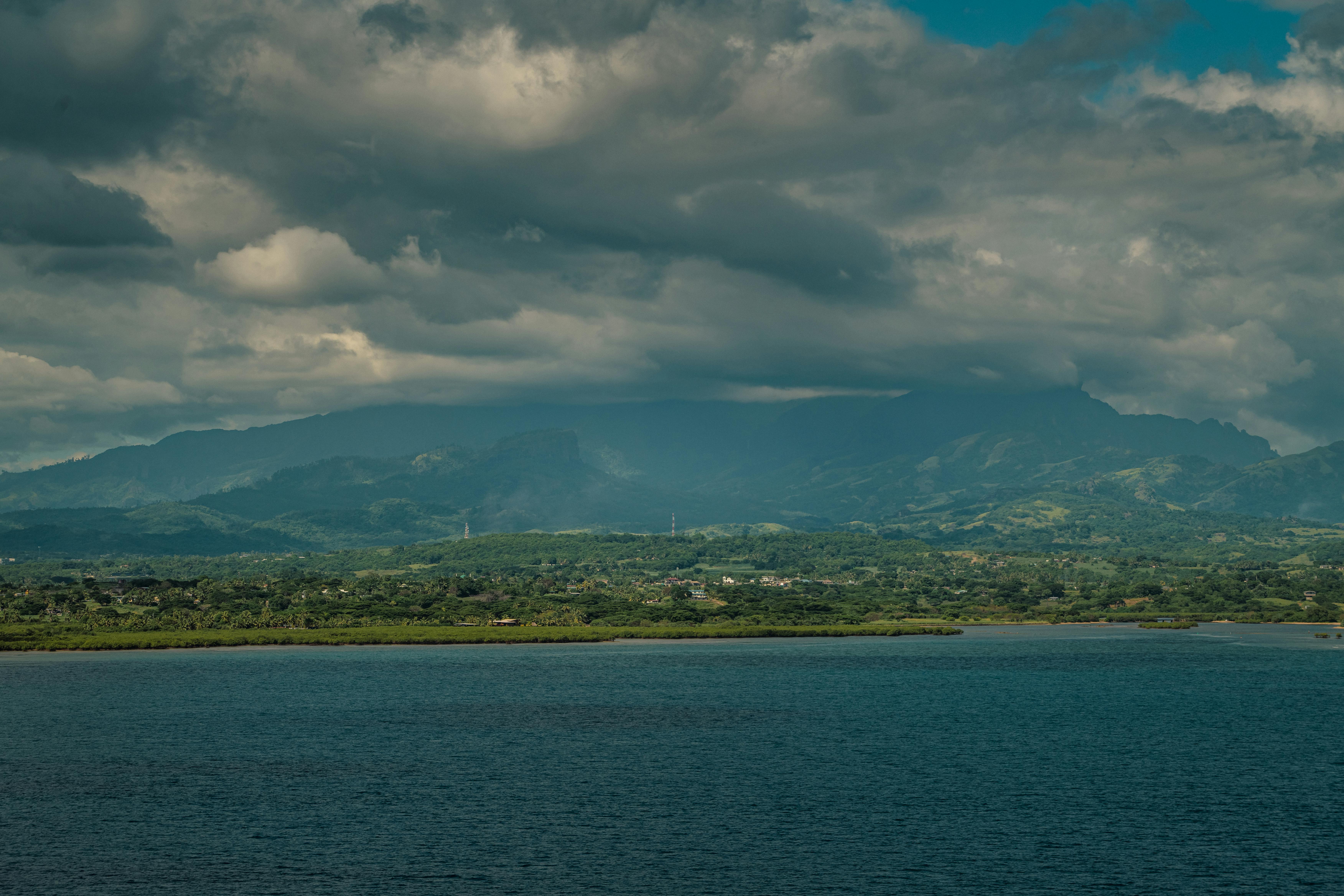
How to get there:
Fiji, a tropical paradise in the Pacific Islands, is a popular destination for travelers. But getting there doesn’t have to break the bank. While many opt for direct flights or expensive tourist shuttles, it’s possible to reach Fiji using public transportation from neighboring countries. In this post, we’ll explore the options for getting to Fiji on a budget.
From Australia
The most common route to Fiji from Australia is by flying. Here are a few budget-friendly options:
- Flights from Brisbane: Fiji Airways, Virgin Australia, and Qantas offer direct flights from Brisbane to Nadi, Fiji. Prices start from around $400 AUD.
- Flights from Sydney: Fiji Airways, Virgin Australia, and Qantas offer flights from Sydney to Nadi with layovers. Prices start from around $500 AUD.
- Flights from Melbourne: Fiji Airways and Virgin Australia offer flights from Melbourne to Nadi with layovers. Prices start from around $550 AUD.
If you’re looking for a more adventurous route, you can take a bus and ferry from Australia to Fiji. This option is not recommended as it’s extremely time-consuming and not a reliable option.
From New Zealand
- Flights from Auckland: Fiji Airways, Air New Zealand, and Qantas offer direct flights from Auckland to Nadi, Fiji. Prices start from around $400 NZD.
- Flights from Wellington and Christchurch: Fiji Airways and Air New Zealand offer flights from Wellington and Christchurch to Nadi with layovers. Prices start from around $500 NZD.
There are no bus and ferry services available from New Zealand to Fiji.
From Vanuatu
- Flights from Port Vila: Fiji Airways and Air Vanuatu offer flights from Port Vila to Nadi, Fiji. Prices start from around $300 VUV.
- Ferry from Port Vila: The MV Havannah ferry operates from Port Vila to Suva, Fiji. The journey takes around 24 hours and costs approximately $100 FJD. From Suva, you can take a local bus or taxi to Nadi.
From Tonga
- Ferry from Nuku’alofa: The MV Otuanga’ofa ferry operates from Nuku’alofa to Suva, Fiji. The journey takes around 24 hours and costs approximately $150 FJD. From Suva, you can take a local bus or taxi to Nadi.
- Flights from Nuku’alofa: Fiji Airways and Tonga Airways offer flights from Nuku’alofa to Nadi, Fiji. Prices start from around $400 TOP.
When to go:
In this post, we’ll break down the different times to visit Fiji, including the best times for weather, festivals, and budget-friendly activities.
Weather
Fiji has a tropical climate, with temperatures ranging from 22°C to 30°C (72°F to 86°F) throughout the year. The weather is generally warm and sunny, making it ideal for outdoor activities like snorkeling, diving, and hiking.
- Dry Season (May to October): This is the best time to visit Fiji if you prefer dry and sunny weather. The dry season is characterized by clear skies, calm seas, and comfortable temperatures.
- Wet Season (November to April): This is the low season in Fiji, with frequent rain showers and increased humidity. However, the wet season also brings lush green landscapes and lower prices for accommodations and tourist activities.
Festivals and Events
Fiji is known for its vibrant culture and festivals, which are an excellent way to experience the local way of life.
- Fiji Day (October 10th): This national holiday celebrates Fiji’s independence from British colonial rule. Expect traditional dances, music, and food.
- Diwali Festival (October/November): This Hindu festival of lights is celebrated with fireworks, decorations, and traditional sweets.
- Bula Festival (July): This popular festival in Nadi features traditional Fijian music, dance, and food, as well as a parade and fireworks display.
Budget-Friendly Activities
Fiji offers a range of budget-friendly activities, including snorkeling, diving, hiking, and visiting local markets.
- Snorkeling and diving: The Mamanuca and Yasawa islands are known for their crystal-clear waters and coral reefs, perfect for snorkeling and diving.
- Hiking: The Koroyanitu National Heritage Park offers hiking trails with stunning views of the surrounding landscape.
- Local markets: Visit the local markets in Nadi and Suva to try traditional Fijian food, buy handicrafts, and mingle with the locals.
Best Time to Visit
Based on the weather, festivals, and budget-friendly activities, the best time to visit Fiji is during the dry season (May to October). This period offers the best weather conditions, with dry and sunny days ideal for outdoor activities.
However, if you’re on a tight budget, consider visiting during the wet season (November to April). Prices for accommodations and tourist activities are lower during this period, making it an excellent time for broke backpackers.
Best Itineraries:
3-Day Itinerary
- Day 1: Arrival in Nadi
- Arrive at Nadi International Airport
- Take a bus or taxi to Nadi Town ($5-$10 FJD)
- Check-in to a budget hostel ($20-$30 FJD per night)
- Explore Nadi Town, visit the Nadi Market, and enjoy the sunset at the beach
- Day 2: Coral Coast
- Take a bus to the Coral Coast ($5-$10 FJD)
- Visit the Kula Wild Adventure Park ($30 FJD)
- Enjoy snorkeling or swimming at the Coral Coast beaches
- Day 3: Island Hopping
- Take a ferry to the Mamanuca Islands ($50-$100 FJD return)
- Visit Monuriki Island (Cast Away Island) and enjoy snorkeling or swimming
- Return to Nadi in the evening
1-Week Itinerary
- Day 1-2: Nadi and Coral Coast
- Follow the 3-day itinerary above
- Day 3-4: Pacific Harbour and Navala
- Take a bus to Pacific Harbour ($10-$20 FJD)
- Visit the Pacific Harbour Arts Village and enjoy water sports
- Take a bus to Navala Village ($10-$20 FJD)
- Explore the traditional Fijian village and enjoy the scenic views
- Day 5-6: Suva
- Take a bus to Suva ($20-$30 FJD)
- Explore the Fiji Museum and the Suva Municipal Market
- Enjoy the nightlife in Suva
- Day 7: Return to Nadi
- Take a bus back to Nadi ($20-$30 FJD)
2-Week Itinerary
- Week 1: Follow the 1-week itinerary above
- Week 2: Explore the Yasawa Islands
- Take a ferry to the Yasawa Islands ($100-$200 FJD return)
- Visit the Sawa-i-Lau Island and enjoy snorkeling or swimming
- Explore the Blue Lagoon and enjoy the scenic views
- Return to Nadi in the evening
1-Month Itinerary
- Week 1-2: Follow the 2-week itinerary above
- Week 3: Explore the Kadavu Island
- Take a ferry to Kadavu Island ($50-$100 FJD return)
- Visit the Astrolabe Reef and enjoy snorkeling or diving
- Explore the Kadavu Island and enjoy the scenic views
- Week 4: Relax in the Mamanuca Islands
- Take a ferry to the Mamanuca Islands ($50-$100 FJD return)
- Relax on the beaches and enjoy snorkeling or swimming
- Visit the Cast Away Island and enjoy the scenic views
3-Month Itinerary
- Month 1: Follow the 1-month itinerary above
- Month 2: Explore the outer islands
- Take a ferry to the outer islands, such as the Lau Islands or the Rotuma Island
- Explore the islands and enjoy the scenic views
- Experience the traditional Fijian culture and hospitality
- Month 3: Volunteer or work in Fiji
- Consider volunteering or working in Fiji to extend your stay
- Look for opportunities in teaching, conservation, or hospitality
- Experience the Fijian culture and lifestyle firsthand
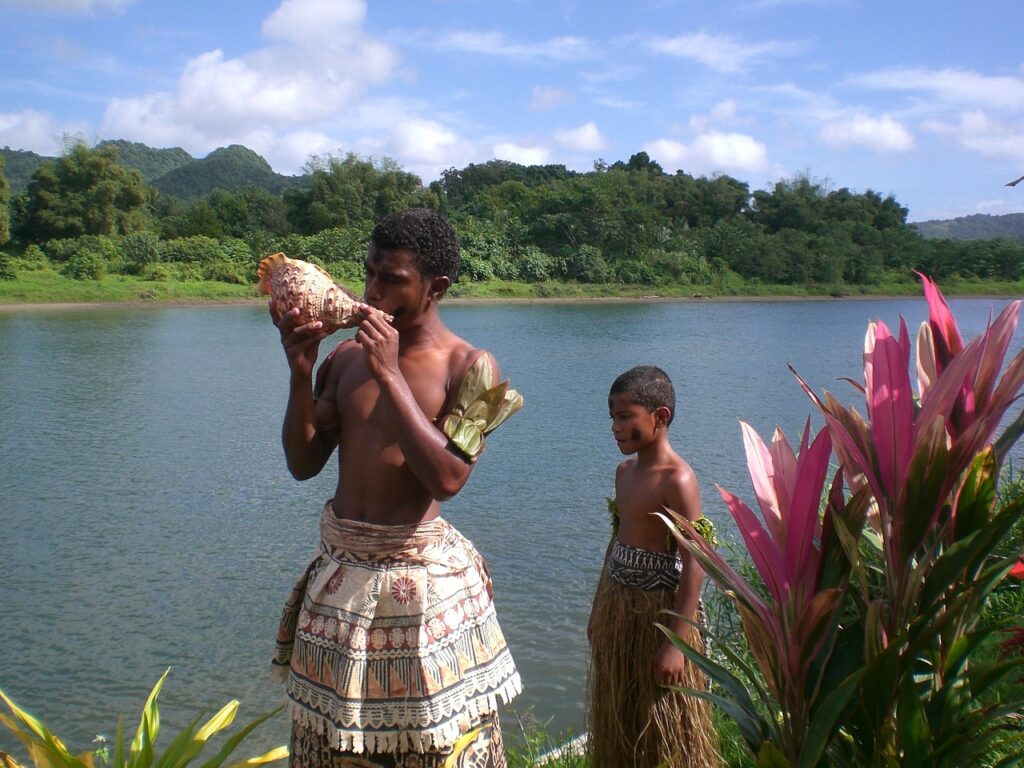
Transportation:
While many opt for taxis or tourist shuttles, public transportation is a convenient and affordable way to get around. In this comprehensive guide, we’ll cover everything you need to know about public transportation in Fiji.
Types of Public Transportation in Fiji
- Buses: Buses are the most common form of public transportation in Fiji. They operate on a regular schedule and cover most areas of the main islands.
- Ferries: Ferries connect the main islands of Viti Levu and Vanua Levu, as well as the outer islands.
- Taxis: Taxis are widely available in urban areas, but can be more expensive than buses.
- Minivans: Minivans operate on a shared basis and are a cheap and convenient way to travel short distances.
Bus Transportation in Fiji
- Bus Routes: Bus routes cover most areas of the main islands, including Nadi, Suva, and the Coral Coast.
- Bus Schedules: Bus schedules vary depending on the route, but most buses operate from 6 am to 6 pm.
- Bus Fares: Bus fares are affordable, with most journeys costing between $1-$5 FJD.
- Bus Companies: Some popular bus companies in Fiji include Pacific Transport, Sunbeam Transport, and InterLink Bus Services.
Ferry Transportation in Fiji
- Ferry Routes: Ferry routes connect the main islands of Viti Levu and Vanua Levu, as well as the outer islands.
- Ferry Schedules: Ferry schedules vary depending on the route, but most ferries operate daily.
- Ferry Fares: Ferry fares vary depending on the route and type of ferry, but most journeys cost between $20-$100 FJD.
- Ferry Companies: Some popular ferry companies in Fiji include the Inter-Island Ferry Services and the South Sea Cruises.
Taxi Transportation in Fiji
- Taxi Fares: Taxi fares are metered, but can be more expensive than buses, with most journeys costing between $10-$30 FJD.
- Taxi Companies: Some popular taxi companies in Fiji include the Fiji Taxi Association and the Suva Taxi Association.
Minivan Transportation in Fiji
- Minivan Routes: Minivan routes cover most areas of the main islands, including Nadi, Suva, and the Coral Coast.
- Minivan Fares: Minivan fares are affordable, with most journeys costing between $5-$10 FJD.
Top things to do:
Nadi Area
- Visit the Nadi Market: A great place to try local food and buy souvenirs.
- Explore the Nadi Temple: A beautiful Hindu temple with stunning architecture.
- Relax on Wailoaloa Beach: A picturesque beach with crystal-clear waters.
- Take a hike at the Garden of the Sleeping Giant: A beautiful botanical garden with stunning views.
- Visit the Sabeto Hot Springs: A natural hot spring with therapeutic properties.
- Explore the Nadi River: A scenic river with stunning views and opportunities for kayaking or fishing.
- Visit the Sri Siva Subramaniya Temple: A beautiful Hindu temple with stunning architecture.
Coral Coast Area
- Snorkel or dive at the Coral Coast: Explore the coral reefs and marine life.
- Visit the Kula Wild Adventure Park: A wildlife park with a variety of Fijian animals.
- Take a boat tour to the Mamanuca Islands: A group of islands with stunning beaches and crystal-clear waters.
- Explore the Sigatoka Sand Dunes: A unique landscape with stunning views.
- Visit the Lawai Pottery Village: A village with traditional Fijian pottery.
- Take a hike at the Koroyanitu National Heritage Park: A national park with stunning views and opportunities for hiking.
- Visit the Coral Coast Beach: A picturesque beach with crystal-clear waters.
Suva Area
- Visit the Fiji Museum: A museum showcasing Fijian history and culture.
- Explore the Suva Municipal Market: A bustling market with local food and handicrafts.
- Take a stroll along the Suva Waterfront: A scenic waterfront with stunning views.
- Visit the Thurston Gardens: A beautiful botanical garden with stunning views.
- Explore the Colo-I-Suva Forest Reserve: A forest reserve with hiking trails and stunning views.
- Visit the Suva Flea Market: A bustling market with local handicrafts and souvenirs.
- Take a hike at the Mount Tomanivi: A mountain with stunning views.
Mamanuca and Yasawa Islands
- Snorkel or dive at the Mamanuca Islands: Explore the coral reefs and marine life.
- Visit the Monuriki Island (Cast Away Island): A picturesque island with stunning beaches.
- Take a boat tour to the Yasawa Islands: A group of islands with stunning beaches and crystal-clear waters.
- Explore the Sawa-i-Lau Island: A picturesque island with stunning beaches and crystal-clear waters.
- Visit the Blue Lagoon: A picturesque lagoon with stunning views.
- Take a hike at the Mount Nabukelevu: A mountain with stunning views.
- Visit the Naviti Island: A picturesque island with stunning beaches and crystal-clear waters.
Kadavu Island
- Snorkel or dive at the Astrolabe Reef: A coral reef with stunning marine life.
- Explore the Kadavu Island: A picturesque island with stunning beaches and crystal-clear waters.
- Visit the Tavuki Village: A traditional Fijian village with stunning views.
- Take a hike at the Mount Nabukelevu: A mountain with stunning views.
- Visit the Kadavu Island Resort: A resort with stunning views and amenities.
- Explore the Great Astrolabe Reef: A coral reef with stunning marine life.
- Visit the Ono Island: A picturesque island with stunning beaches and crystal-clear waters.
Taveuni Island
- Take a boat tour to the surrounding islands: A group of islands with stunning beaches and crystal-clear waters.
- Explore the Taveuni Island: A picturesque island with stunning beaches and crystal-clear waters.
- Visit the Bouma National Heritage Park: A park with stunning views and traditional Fijian villages.
- Take a hike at the Mount Uluqala: A mountain with stunning views.
- Visit the Taveuni Waterfalls: A series of waterfalls with stunning views.
- Explore the Somosomo Village: A traditional Fijian village with stunning views.
- Visit the Taveuni Island Resort: A resort with stunning views and amenities.
Food:
From its sandy beaches to clear waters, Fiji is a haven for foodies and travelers alike, situated in the Pacific Islands. The country’s unique cultural heritage, with the amalgamation of its indigenous, Indian, Chinese, and European influences, reflects in its diverse and flavorful cuisine. From traditional Fijian dishes to international flavors, Fiji’s food scene has something to offer every kind of traveler.
Food in Fiji mainly consists of coconut, which is used in everything from curries to desserts. Fish is also widely used, since it is so abundant in Fijian waters, and is usually served grilled, fried, or in soups. Meat, especially beef and chicken, is also in high demand and is mostly consumed in the form of curries or stews. Fijian cuisine consists of bold flavors with the major use of spices, herbs, and chilies.
One of the best ways to really experience Fijian food is to visit a local market, where an array of fresh produce, meats, and prepared dishes is at your fingertips. The Nadi Market, located in the heart of Nadi Town, is an excellent place to begin this food expedition. Here, you can sample traditional Fijian dishes such as kokoda, raw fish marinated in coconut milk and lime juice; palusami, steamed taro leaves filled with coconut cream and meat or fish; and lovo, meat or fish cooked in an underground oven.
Apart from traditional Fijian cuisine, Fiji has a plethora of international restaurants serving everything from Indian curries to Chinese stir-fries. Many restaurants, cafes, and bars can be found along the Coral Coast-a popular tourist area that provides different classes of food. Suva, the capital city, has a lively food scene with many restaurants and cafes serving traditional Fijian and international cuisine.
For the economical traveler, there are also a number of affordable places to eat, from food stalls and markets offering traditional Fijian dishes at reasonable prices to guesthouses and hostels, many of which offer meal options.
Mealtimes are very much social occasions, even in Fiji. In most villages in Fiji, food is still traditionally prepared with the use of wood-fired ovens and steaming baskets. Many times, visitors are invited to share a meal, which can be a good way to encounter Fijian hospitality and culture.
Its food also boasts much of the influence of its Indian and Chinese communities, with different ways of preparing and cooking food. The Fijian soil is then graced with a wide array of authentic and delicious dishes in Indian and Chinese cuisine, which is found in restaurants and food markets in large numbers.
Organic and sustainable farming is also a fast-growing trend in Fiji in recent years, where local farmers and producers focus on the cultivation and harvest of fresh and chemical-free produce. That is how fresh, healthy food comes along the line, from farm-to-table restaurants to organic cafes and markets.
Local markets are the best places to taste some of the unique fruits of Fiji, such as durian, jackfruit, and breadfruit. Many of these fruits are used in traditional Fijian food in making desserts and salads.
Besides its wonderful food, Fiji also has a reputation for fresh coconuts that are widely available throughout the country. Fresh coconut water is refreshing and healthy to drink, while the flesh of the coconut is used in everything from curries to desserts.
Fijian food is also heavily influenced by its Pacific Island neighbors, as many traditional dishes and ingredients are similar across the region. For this reason, Fiji boasts a unique and mouthwatering Pacific Island cuisine, reflecting its geographic location and rich cultural heritage.
Food festivals and events also happen throughout the year, giving a chance for those who want to experience the best in Fijian cuisine. The Fiji Food Festival, held annually in Suva, is the best place to sample a wide range of traditional Fijian dishes, as well as international cuisine.
In the end, Fijian food represents the rich cultural heritage of the country and its outstanding geographical location. With both traditional and international cuisines, Fiji has something for every type of traveler. Whether it is traditional Fijian food you are looking to taste, or some international flavor, or even just enjoying
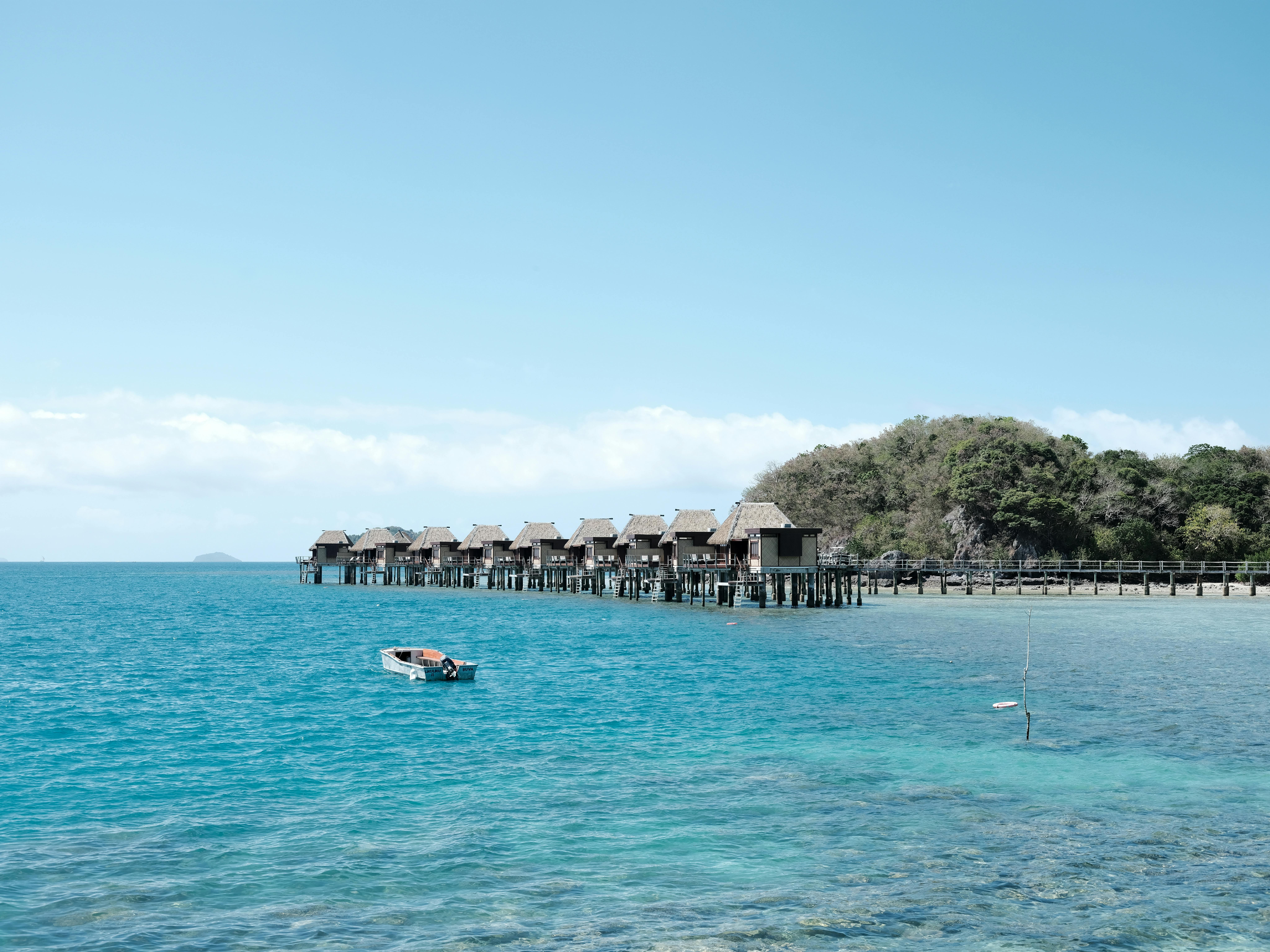
Culture:
Fiji is a tropical paradise in the Pacific Islands and is a very culture-rich country. Its culture, shaped by its history, geography, and traditions, is represented through indigenous, Indian, Chinese, and European strands that make up the Fijian strand. The culture of Fiji also stretches to traditional ceremonies, vibrant arts, and crafts, along with being an essential part of the country’s appeal.
At the heart of Fijian culture is the concept of “vakaturaga,” or respect, which is deeply ingrained in Fijian society. This respect is shown to elders, chiefs, and visitors, and is reflected in the traditional Fijian greeting, which involves a gentle bow of the head and a warm smile. Fijians are known for their hospitality and welcoming nature, and visitors to the country are often greeted with a traditional ceremony, usually called a “kava ceremony,” which involves the drinking of yaqona, a traditional Fijian beverage made from the roots of the kava plant.
Kava ceremonies form part of Fijian culture and are, thus, very significant, usually accompanying important occasions such as weddings, births, and funerals. This ceremony is meant to prepare and serve yaqona, believed to possess some medicinal and spiritual properties. The ceremony affords an opportunity for socializing and bonding. The event may also be characterized by traditional Fijian music, dancing, and storytelling.
Traditional Fijian music and dance are also part of the culture. The traditional Fijian dance, also known as “meke,” is a very lively and energetic dance involving intricate footwork and hand movements. Meke is normally performed on special occasions such as weddings and festivals, accompanied by traditional Fijian music, which involves instruments like drums, guitars, and ukuleles.
Fijian culture is also so well manifested in its spirited arts and crafts, comprising traditional Fijian pottery, weaving, and wood carvings. Fijian pottery is recognized for its very unique designs and patterns, quite often inspired by traditional Fijian mythology and legends. Fijian weaving is also popular, with the traditional Fijian textiles highly prized for beauty and durability. Woodcarvings are another important part of Fijian culture, with traditional Fijian woodcarvers creating intricate and beautiful designs that reflect the country’s rich cultural heritage.
Another great part of Fijian cultural heritage is the traditional ceremonies and rituals, which have an important place in the lives of native people. The traditional Fijian wedding ceremony, for example, is a grand and colorful affair where gifts are exchanged, traditional dances are performed, and traditional Fijian foods are served. This ceremony also gives the opportunity for socialization and bonding, as there will be traditional Fijian music and storytelling during this.
Besides the traditional ceremonies and rituals, there are also several cultural festivals that celebrate the rich cultural heritage of Fiji. The Fiji Festival is one such popular yearly event in Fiji that celebrates the music, dance, and culture of the Fijians. During the festival, one can enjoy a variety of traditional Fijian performances, including music and dances, storytelling, and traditional Fijian food and crafts.
The cultural heritage of Fiji is also reflected in its traditional Fijian villages, which are an important part of Fijian life. These villages are often found in rural areas and are home to traditional Fijian communities. Visitors to these villages can experience traditional Fijian life firsthand, including traditional Fijian foods, music, and dance.
The traditional Fijian village is also a great place to understand the culture and traditions of Fijians. Visitors can be involved in some traditional Fijian work, such as weaving, pottery, and woodcarving, and learn a lot about the rich cultural heritage of the country. Traditional Fijian villages are also ideal for trying traditional Fijian food, including kokoda, palusami, and lovo.
The cultural heritage of Fiji is also reflected in the traditional Fijian attire, which forms part of Fijian identity. Traditional Fijian attire, referred to as “sulu,” is a long, loose garment worn by both males and females. The sulu normally contains various intricate designs and patterns that reflect the rich cultural heritage of the country.
Accommodations:
Nestled within the Pacific Islands, Fiji is a tropical paradise and haven for those Broke Backpackers looking for an adventure that is unique and etched in their memories forever. Be it luxurious resorts or budget hostels, Fiji has something for everyone when it comes to accommodations. However, for the most crazy, amazing, and very unique experience, Broke Backpackers should look no further than the cheapest options for hostels.
Booking the cheapest hostel in Fiji may sound like a hassle, but trust us, it is an experience that is not to be missed. Many of them are family-run, warm, and full of welcoming feelings that make one feel a part of the family. This could also mean that owners and staff are passionate about sharing their culture and traditions with guests, inviting them to participate in traditional Fijian ceremonies, meals, and activities.
One of the beauties of staying in a budget hostel in Fiji is that you can meet and interact with other travelers. Most hostels have a communal atmosphere, including shared kitchens, lounges, and outdoor spaces to hang out and swap stories with fellow travelers. You may even make lifelong friends with the people you meet in these hostels.
Another advantage of staying in a budget hostel in Fiji is the flexibility and freedom it offers. Many of these hostels are very relaxed and laid-back, with no curfews or strict rules to follow. You can come and go as you please, and the staff are often happy to help you plan your itinerary and book activities and tours.
Of course, staying in a budget hostel in Fiji means being prepared for the unexpected. The hostels may not always have state-of-the-art amenities or luxurious facilities, but they compensate with their unique character and charm. You may find yourself sharing a room with strangers, or dealing with the occasional power outage or water shortage. But these are all part of the adventure, and most will find that the advantages of staying in a budget hostel greatly outweigh the disadvantages.
As a matter of fact, some of the greatest experiences you will have in Fiji will no doubt be the ones that you experience in these hostels. From impromptu rugby with the locals to an authentic Fijian feast with the owners and a crazy night out with fellow travelers, these options offer experiences not found in accommodations that might be more costly.
Some hostels may also be manned by enthusiastic personnel with an inclination to share culture and tradition, in which case one gets introduced to the ways and modes of Fijian living. Even joining activities considered very traditionally Fijian-like might become part of the invitation list for one: weaving, wood carving, or fishing.
Another great way to experience the local community in Fiji is by staying in a budget hostel. Many of these are in rural areas, allowing you to experience traditional Fijian village life firsthand. You may even find yourself being invited to join in on local events and celebrations, such as weddings, birthdays, and traditional ceremonies.
Along with unique cultural experiences, one of the greatest ways to meet other travelers while in Fiji is to stay at a budget hostel. These usually come complete with shared kitchens, lounges, and outdoor areas where you can hang out and swap stories with other travelers. You may just meet lifelong friends with the people you meet in these hostels.
Overall, a stay in a budget hostel in Fiji is an experience one would never want to miss. From unique cultural experiences to a communal atmosphere, with the flexibility and freedom of staying in such hostels, these hostels offer something that no other more expensive accommodations can provide. So if you are a broke backpacker looking for a different and amazing experience in Fiji, never be afraid to book the cheapest option of a hostel. Well, not the most luxurious, or up-to-date, but just an experience that you would never forget.
As you settle into your budget hostel in Fiji, it won’t take you long to notice that it’s not just a place to sleep but a community, family, and home away from home. The staff will be more like a second family to you, and the other travelers will then become lifelong friends. You all will share meals together, go on island exploration, and experience the unique culture and traditions of Fiji together.
And as you lay in bed at night, listening to the sound of the waves crashing outside and the laughter and chatter of your fellow travelers, you will know you have made the right decision by choosing to stay in a budget hostel in Fiji. This may not be the most luxurious or even modern accommodation, but it’s an experience you will never forget, and it is something that will stay with you for the rest of your life.
Nightlife:
Fiji is a tropical paradise in the Pacific Islands that offers travelers a special and unforgettable night life. When the sun dips below the crystal waters and coral reefs, the islands come alive in an energetic light of night life, leaving your breath taken away.
The nightlife in Fiji is a blend of traditional Fijian culture and modern influences, with a unique blend of local and international music, dance, and entertainment. From lively bars and clubs to traditional Fijian dance performances and live music venues, there’s something for every taste and preference.
One of the best things about the nightlife in Fiji is its laid-back and relaxed atmosphere. Unlike many other destinations, Fiji’s night life is not only for partying and dancing the night out but also for socializing with others. You will also notice that most of these bars and clubs are designed to facilitate socializing and mingling, with comfortable seating arrangements and communal tables where you could meet and greet fellow travelers and locals alike.
With your research into the nightlife scene in Fiji, you will also find quite a unique and interesting cultural heritage. Traditional Fijian dance performances are one of the high spots in the nightlife, full of energy and color, with traditional Fijian music and dancing. You will also be able to witness some of the traditional ceremonies and rituals of Fijian culture, such as the traditional welcome ceremony of Fijians, which is unique and unforgettable and can keep your memories alive throughout your life.
Besides the rich cultural heritage, the nightlife of Fiji has a touch of being modern and really trendy. Almost all the bars and clubs offer live music and DJ’s, playing both international and local music. Moreover, a lot of themed parties and events also take place, ranging from beach parties to full moon parties, which will give one the perfect excuse to get to know fellow travelers and locals.
As the night wears on, you will find that the nightlife scene in Fiji gets more energetic and lively. The bars and clubs stay open late, with many of them featuring live music and entertainment until the early hours of the morning. And with the tropical climate and stunning natural beauty of the islands, you’ll find that the nightlife scene in Fiji is the perfect way to experience the best of the islands after dark.
Be it a casual and relaxed ambiance or an energetic and lively one, Fiji’s nightlife has something to suit every taste and preference. From traditional Fijian dance shows to trendy and hip bars and clubs, a night out in Fiji is incomparable and a lifetime memory.
As you explore the nightlife scene in Fiji, you’ll also come across a number of eclectic and unusual bars and clubs that are really quite different from anywhere else in the world. From beachside bars with stunning sunset views to hidden away clubs with secret entrances, Fiji’s nightlife scene is full of surprises and hidden gems waiting to be discovered.
And with the locals being some of the friendliest, most welcoming people you’ll ever meet, the nightlife in Fiji is one surefire way to see the best of the islands and interact well with the local community. Whether you want to make new friends, learn about the local culture, or just have a great time, Fiji’s nightlife scene has got something for everyone.
As the night wears on, you’ll find that Fiji’s nightlife scene is an incredible way to let loose and have a great time with the music getting even louder. Due to its unique blend of traditional Fijian culture and modern influences, Fiji’s nightlife scene is indeed a truly unforgettable experience that one will always remember.
And with the islands being relatively small, easy to get around, you will find that it’s simple to explore the Fiji nightlife, finding all the hidden places and secret spots the island has to offer. Whether you’re looking for the cream of the islands’ nightlife, or just want to relax in a beautiful tropical setting, then Fiji has something for you.
While going on to describe or identify the different areas involved in Fiji’s night action, you’ll get plenty of different unique delicious drinks, not to be tried elsewhere in the world. Be it pure Fijian beers or modern day coolers, this land’s night world offers a range from everyone to every other.
And with the friendliest and most welcoming of locals, you will find that it is a great way to spend your time in Fiji as you get to experience some of the best of the islands and connect with the people. Whether you want to socialize with new friends, meet locals, or just have the best time, Fiji nightlife has something for everyone.
As the night wears on, the music gets louder, and the nightlife scene in Fiji is just perfect for one to let loose and have a great time. Due to its unique blend of traditional Fijian culture and modern influences, Fiji’s nightlife is truly an unforgettable experience that creates lifelong memories.
Backpacking Fiji costs:
Daily Expenses:
- Accommodation: $5-10 FJD ($2.50-5 USD) per night for a basic guesthouse or hostel dorm
- Food: $5-10 FJD ($2.50-5 USD) per day for meals at local markets, food stalls, or cooking your own meals
- Transportation: $2-5 FJD ($1-2.50 USD) per day for local buses, taxis, or walking
- Activities: $5-10 FJD ($2.50-5 USD) per day for snorkeling, swimming, or exploring local villages
Total Daily Expenses: $17-35 FJD ($8.50-17.50 USD)
To stay within the $10-25 USD per day budget, consider the following tips:
- Stay in basic guesthouses or hostel dorms
- Cook your own meals or eat at local markets and food stalls
- Use local transportation, such as buses and taxis
- Avoid expensive tourist activities and opt for free or low-cost alternatives, such as snorkeling, swimming, or exploring local villages
- Negotiate prices for accommodations, transportation, and activities
- Use cash instead of credit cards to avoid foreign transaction fees
By being mindful of your expenses and following these tips, you can have a great time in Fiji while staying within your budget of $10-25 USD per day.
Conclusion:
As you come to the end of your journey through this tropical paradise that is Fiji, the memories of your time here will likely remain in your mind forever. From stunning beaches and crystal-clear waters to vibrant culture and friendly locals, Fiji has a way of captivating even the most seasoned traveler’s heart.
As a broke backpacker, you may have thought Fiji was well out of your league, or simply too expensive. As you have probably gathered by now, that need not be the case at all, considering how much one can do here with a bit of creativity and resourcefulness.
Be it economic stays, delicious food, the trip around the islands, or anything else regarding culture, every form of traveler will find his or her need in Fiji. And when you’ll be sitting on the beach and watching the sunset in the middle of the ocean, trust me, each penny was worth it.
So if you are thinking about going to Fiji on a budget, do not let the fear of the unknown prevent you. A little planning and preparing can be the gateway to an unforgettable adventure in this tropical paradise. And who knows-you might find your new favorite destination.
